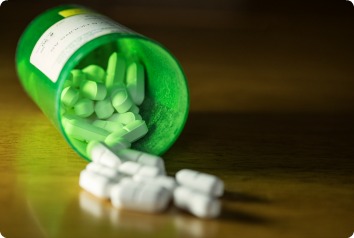 In 2016 researchers at the Department of Health and Human Services found that every 25 minutes an infant is born with an opioid addiction and 11.5 million people had misused opioid prescriptions, such as Vicodin, Percocet, OxyContin and Morphine. Even though the Trump administration declared the crisis a state of emergency last October, there is still a lack of funding and the epidemic is accelerating at a rapid rate.
In 2016 researchers at the Department of Health and Human Services found that every 25 minutes an infant is born with an opioid addiction and 11.5 million people had misused opioid prescriptions, such as Vicodin, Percocet, OxyContin and Morphine. Even though the Trump administration declared the crisis a state of emergency last October, there is still a lack of funding and the epidemic is accelerating at a rapid rate.
While communities are being ravaged, the most heart-breaking fact is that children are in the crux of it all. Children with parents facing an opioid addiction can be left in unsafe and unstable environments, raised by extended relatives or friends as an informal plan, placed into foster care by the county, or found in need of caregivers after their parents pass away due to their drug use. The CDC found that more than 42,000 deaths in 2016 were due to an opioid overdose.
This problem continues to increase. In 2012, parental drug abuse accounted for less than 1 in 7 children being taken from their homes. That share has increased in each of the past five years, and in 2016 the number was just over 1 in 4 according to the Department of Human Services.
Helping children thrive when their world has changed
When children are removed from their homes due to parental drug use, the county first focuses on supporting the parents and providing them the resources to overcome their addiction so that they can provide their children stable, loving environments. When there is a reasonable belief that the parent will be dependable, the child will return to his/her home. When it becomes apparent that reunification with the biological parents will not be a viable option, additional homes are considered.
The next best alternative for children is working with the child’s relatives or kin (friends, teachers, neighbors or others who have a strong connection to the child) to find a permanent, loving home. CH/LSS offers support to relatives and kin in navigating the process from kinship foster care to adoption and accessing the resources that they need.
If a relative or kinship home is not available, an adoptive family will be identified for these children. We assist and support these adoptive families throughout the process. As part of our pre-adoptive education, we will explain some of the experiences their children may have faced due to the opioid epidemic as well as some of the behaviors the children may exhibit as a result of this trauma.
As part of our services for both relative/kinship families and adoptive families, we host parenting support groups in which foster care adoptive parents gather and share their own joys and struggles. These groups also provide an opportunity to exchange feedback and ideas.
With all these challenges, Minnesota state officials, county workers, and police officers are doing their best to combat this crisis at a local level. For instance, the state of Minnesota has set up the Minnesota Prescription Monitoring Program, which allows doctors to track patient’s opioid history and pharmacies are state-mandated to daily report dispensing of drugs. Even with newly developed programs, more work is still needed. Contact your representatives to show your support of new bills that tackle this complex problem. Also, consider supporting a child that has been impacted through parental opioid addiction by considering adoption.
Learn More
You can learn more about foster care adoption and meet children waiting for a permanent home on our website. When you are on the waiting child photo listing, you can filter the region to “Minnesota” to view children waiting in foster care.
Meet Waiting Children Learn About Foster Care AdoptionIf you are a relative or kin who needs information about adoption, please contact us.
[email protected] | 651.646.7771 | 800.952.9302


